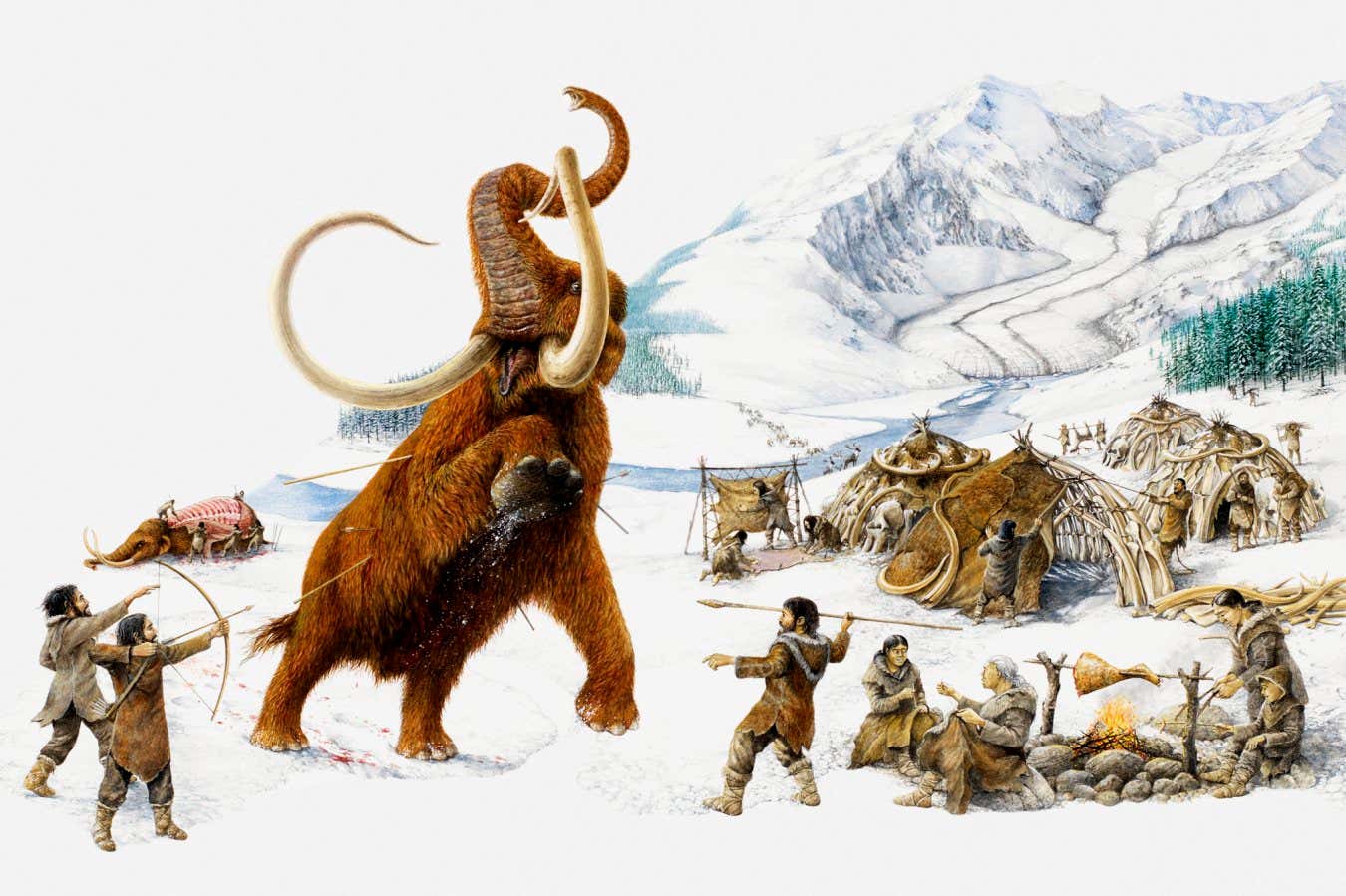DNA from bones found in a cave in Germany has been identified as from Homo sapiens, showing that our species endured frigid conditions there as they expanded across the continent
By Michael Marshall
31 January 2024
Early European humans may have hunted mammoths in a frozen landscape
Dorling Kindersley/Getty Images
When modern humans first began settling in Europe, they went straight to the cold north. A challenging excavation in Germany places our species in the region at least 45,000 years ago – and supports earlier claims that our ancestors were in Britain not long after.
Read more
Who is Ancestor X? The biggest mystery in human evolution
“These guys came into a landscape which was quite hostile,” says Jean-Jacques Hublin at the Max Planck Institute for Evolutionary Anthropology in Leipzig, Germany. “It was like northern Finland [today].”
Advertisement
Modern humans are the most recent hominin to permanently settle in Europe, around 45,000 years ago. Previously, the continent was dominated for hundreds of thousands of years by Neanderthals, who vanish from the fossil record about 40,000 years ago. Modern humans and Neanderthals may have overlapped in France and Spain for 1400 to 2900 years.
“The replacement of all archaic humans by Homo sapiens, between 50,000 and 40,000 years ago, is something that occurred all over Eurasia,” says Hublin. It was a crucial period because for millions of years there had been multiple hominins coexisting, but now only one survived.
“This is the start of one species invading all the possible habitable niches on the Earth,” says Hublin. “We know it happened… but we don’t know why and how it happened.”
